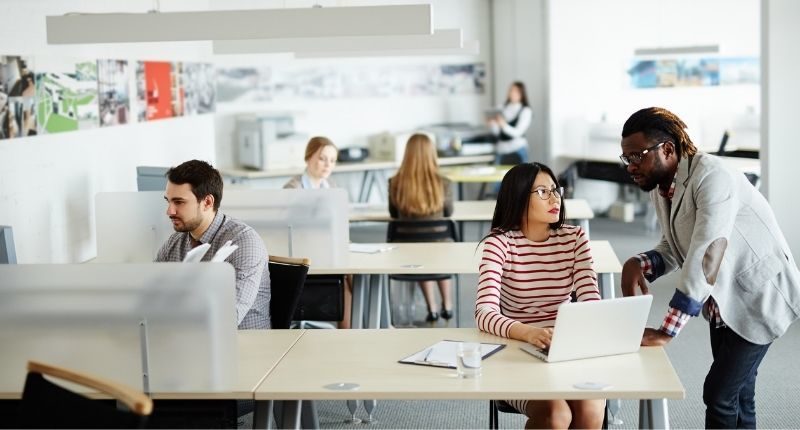- Companies adapting to changing work conditions will have a competitive advantage
- Research found the office provides a sense of community and belonging
- Remote work has led to gaps in collaboration, leadership, and managerial competencies
Companies able to adapt to new and changing conditions across work, the workforce, and the workplace will successfully build their competitive advantage in a post-pandemic world, according to new reports by JLL.
The global property services firm released both the Shaping the Future of Work for a Better World and Shaping Human Experience reports and found employees still retain a strong affinity for the office, despite the willingness to continue to work from home.
JLL managing director of accounts for Work Dynamics Australasia Ben Tindale said, “JLL Research has found that the office provides a sense of community and belonging, where remote work has led to gaps in collaboration, leadership, and managerial competencies.”

The report, which surveyed more than 2,000 global office workers, found 70% of office workers believe the office environment is more conducive to connecting with teammates to solve complex issues, manage direct reports, and connect with leadership.
Mr Tindale said, “Moving forward, however, variety, flexibility, and choice will be core tenets of all successful office environments.
“Traditional offices will act as the central hub for productivity and collaboration and provide a new purpose of driving sustained human performance, experience, and well-being.”
One in two employees considered socialisation spaces crucial to their experience in the office in the future, and a further 74% of employees agreed having the ability to go into the office remains fundamental.

Changing work mindset
Mr Tindale said companies have already adjusted to greater workplace flexibility as a result of the pandemic, but they will also have to lean into and proactively address changing workforce preferences in order to retain and attract top talent.
“With work now truly boundaryless – where 66% of employees expect to be able to work from different locations post-crisis – employees are requesting a safe, productive and seamless experience that satisfies their personal and professional needs. This will require employers to balance the dynamic between the physical and virtual workplace to meet employees’ diverse, changing needs, and workstyles.”
JLL’s research highlights four worker profiles which suggest employee expectations of the future of work are radically different:
- The Traditional Office Worker wants to work exclusively in the office
- The Free Spirit wants to escape from the traditional office environment
- The Experience Lover enjoys human experiences
- The Wellness Addict prioritises work-life balance
These types will need to be front and centre as employers look to build a worker-centric workplace that is inclusive of employees’ diverse preferences.
Mr Tindale said, “Many employers are now starting to accept that they may never operate in the way they did pre-crisis again.
“Employers need to shape their workspaces according to the new ways of working imposed by the pandemic, and reinvent themselves to evolve alongside the workforce, rather than against it.”

A different workplace
The report stated it expects a significant shift in flexible space operating model, especially with hybrid work quickly becoming the status quo.
Mr Tindale said, “This ranges from landlords creating their own flexible space (or partnering with flexible space operators) to corporate occupiers considering a greater dispersion of their footprint to adapt to new working and living patterns, a dispersed, digitally enabled liquid workforce will characterise the future of work.
“While COVID-19 has incited a massive paradigm shift in the way we work and live, it is also providing a once in a lifetime opportunity to shape a better future of work. In the near future, successful companies will be those that are bold and proactive in shaping their workplaces according to the changing needs and preferences of a liquid workforce, where solutions are tailored to meet individual employee needs.”








